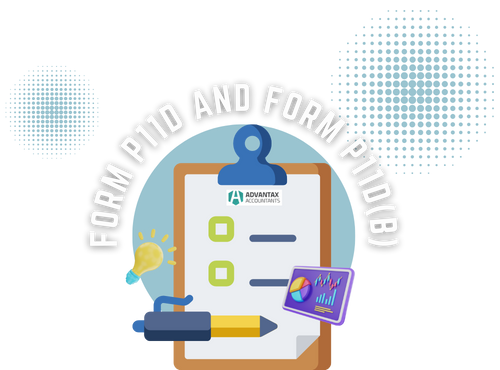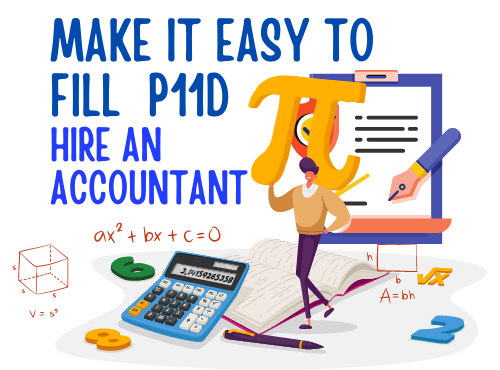At the end of the financial year, businesses or their owners/directors are usually required to file a P11D form with HM Revenue and Customs (HMRC) for each employee for whom you have provided expenses or services.
You must also submit Form P11D(b) if:
- You have already submitted P11D
- You paid for employee benefits or expenses via your payslip
- HMRC has asked you to do this
The P11D (b) form tells HMRC the amount of National Insurance Class 1A that you have to pay for all your expenses and benefits.
If HMRC asks you to file P11D(b) you can tell them you don’t owe Class 1A National Insurance by submitting a declaration.
Whilst now feeling comfortable in the new financial year we are focusing on the 6th July deadline to complete and submit the P11D declaration to HM Revenue & Customs (HMRC). If you were lucky enough to register for wage benefits before April 5, 2018, breathe a sigh of relief that you won’t have to file a P11D return. This article will be helpful if you are new to payroll or just want to brush up on your tasks.
How to Complete Form P11D?
Completing a P11D declaration can be confusing for most of us as it is a very complex area. Even if you have software that handles it, you still need to understand the basics. There is a lot of help and advice out there and you will find many ways and forms to help you including the following:
- 480 Expenses and Benefits Tax Guide
- 490 – Employee Travel: Taxes and NIC Manual
- A-Z Expenses and Benefits Guide
- Employer Benefits and Expenses (About guidelines, deadlines, record retention and waivers)
- How to complete Forms P11D and P11D(b)
- Class 1A Social Contribution in kind
P11D is a legal declaration required when an employer provides an employee or officer with taxable business expenses and taxable benefits received in a tax year that are not included in salary. P11D must declare all items that the company pays for and the services for which must be declared, e.g. B.: company car and fuel; Loans, including train tickets; Health insurance; property transferred to employees who have significant personal use thereof; Expenses not related to business trips or vacations.
Certain expenses may be excluded from reporting if you receive an HMRC exemption. When an employee personally incurs business expenses, they do not need to be declared; examples include business travel, business leisure, work wear, tools, tariffs, and subscriptions.
The P11D form must be filed by the employer no later than July 6 following the respective fiscal year To qualify for the exemption, employers must either pay employees a flat rate as part of their earnings (which must be either a standard rate or a special “custom” rate approved by HMRC) or reimburse the employee for actual costs. An exemption is not required if you pay the HMRC referral rate for eligible expenses.
The in-kind interest in HMRC was announced in the P11D announcement, and the tax obligations imposed on the worker through their tax code or self-certification. However, there are also contributions to the National Insurance Class 1A (NIC) paid by employers; No liability for NIC employees. The P11D(b) statement is used to report to HMRC the total value of benefits provided by the employer to its employees, as well as the amount of Class 1A NICs payable (employers only) calculated at 13.8%. This announcement must be completed and submitted after the P11D announcement.
P11D information can be submitted to HMRC using commercial software or through PAYE Online or HMRC’s online services for year-end benefits and expenses. You can also download the P11D (and P11D(b)) announcement, complete it and send it to the HMRC P11D support team. For some services, it is necessary to enter the current value of the service provided. There are six documents available on GOV.UK that may be helpful.
You must calculate the cash value if you have provided services for: vans, zero-interest or low-interest loans, transportation costs, mileage allowance, lodging, and auto fuel. … difficult to correct, and incorrect or late submissions may lead to penalties If, after filing your P11D return with HMRC, you find errors or omissions in the data, you will need to re-upload a copy of the revised return which must include all benefits and expenses for the tax year, not just fees.
Changes must be made using a paper P11D permit. For example, if a false P11D claim shows a medical benefit of £300 and a medical benefit of £2,100, but the medical benefit should be £500, submit a revised P11D showing both a medical benefit of £500 and a medical benefit of £500 medical, £500 car £2,100 inclusive.
Remember that a change in the value of the P11D may change the number of Class 1A NICs, so you must submit a revised P11D (b) statement. Include the total amount of Class 1A network interface cards to be paid, not the difference from the previous version. For example, if the original P11D (b) shows that £10,000 is paid into a Class 1A NIC but you lose £500, the revised statement should show the amount as £10,500.
On the amended return, write the word “amendment” and be sure to include the tax year associated with the amendment. Submit the amended statement with a cover letter.
When Form P11D is Required?
The deadline for payment of NIC Class 1A to HMRC must reach HMRC no later than July 22 for electronic payment or July 19 for check payment. The P11D declaration is filed by the employer no later than July 6 following the corresponding fiscal year. Therefore, the return for the fiscal year that ended on April 5, 2022, must be submitted before July 6, 2022. The subject must be presented with a copy of the information contained in the P11D return.
Possible errors in Filling Up P11D or P11D (b)
Registration errors can be difficult to correct, and incorrect submission or delays can result in penalties. You must pay £100 to 50 employees for each month or part of the month you must pay a P11D or P11D (b) return. Penalties and interest for late payments must also be paid to HMRC.
To try to avoid errors before submitting the statement, take the time to complete it and note the following mistakes employers make:
- Release a duplicate of the P11D as well as an electronic version
- Using the wrong tax year paper form
- Forgot to sign brochure P11D (b)
- By unchecking the “Administrator” box if necessary
- It does not tell HMRC that the P11D “zero” must be paid.
- Report the total value and not the amount for personal use unless benefits are available for business and personal use
- Failure to complete the Fuel Benefits Fund/field, if applicable.
- Try to avoid all these mistakes. It is a good idea to hire a tax accountant to take care of all these things.
Try to avoid all these mistakes. It is a good idea to hire a tax accountant to take care of all these things.



